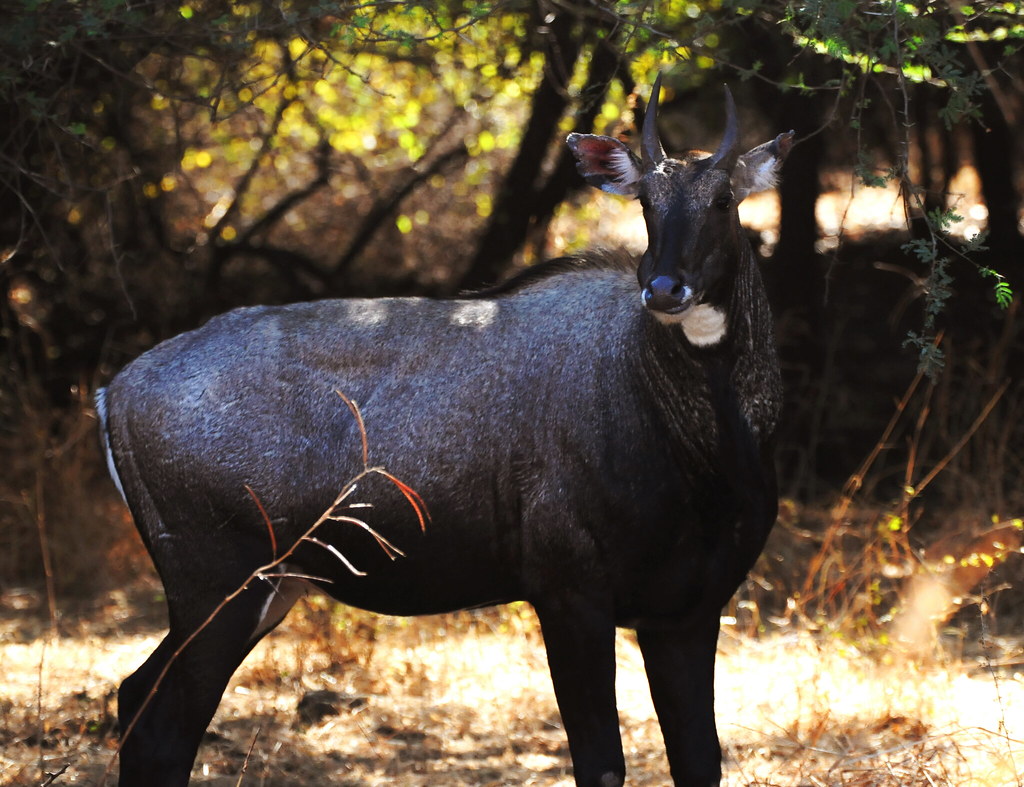Farmer by day. Watchman by night.
Babubhai is a cotton and groundnut farmer from Valadhari – a small village in western India. He wakes up at 5.30 every morning and goes to the field with his son and daughter-in-law. Through the day, they irrigate the field, fertilize and de-weed the land, scout for signs of any new pest on their crops and so on. He returns back home at four in the evening. Other domestic chores and village activities keep him busy till about 7pm. At around 8pm after having his dinner, he takes a torch and sets off to his field in a cycle – this time alone.
As one reaches the field that is on the outskirts of the village, it is common to see the entire landscape, bathed in black being stabbed on and off, by small battery operated torch lights. Dozens of farmers come to the field in the night and stand watch over their fields. They bake corn over a small bonfire and wait. A couple of hours later, there is a small commotion and farmers get up and dart across their fields, flashing their torches around and screaming at the same time.
This is the ritual that happens every night to spot and prevent a new threat that destroys their crops. It is the neelgai. Groups of neelgai prowl farmlands in the night and either trample over crops or eat up the ‘jindva’ as the farmer calls it – the cotton boll. The damage is extensive at times. One that threatens to put the farmer into debt as much as a bad monsoon or a bad market price would.
Farmers have no option but to keep watch over their fields night after night, for the Neelgai can’t be hurt due to regulatory and religious norms. There is no option but to stand watch over their fields in the night after a full day’s work. There is no option but to forego their sleep and to risk the dangers of walking around in fields at night.
Who can solve this problem in a manner that is consistent with the norms? Is it the insurance companies that offer crop protection, the banks that given the loans, the scientists at the government run KVK (Krishi Vigyan Kendras), the agri-businesses with their large resources and powerful R&D departments? Or maybe a public or private institution that disburses funds to fence the plots – like has been done by the farmers of Gandhigram in Kutch who built a fence that covers the entire 250 acres of farmland in that village at a cost of Rs.2 lakhs in 2006 –self-funded and built with their own hands. Of course most small farmers would struggle to put aside that sum of money to fence their plots. What they can afford now is to let go off their sleep and stand watch – to be a farmer and a watchman. Maybe it’s the turn of the rest to wake up to this issue.



